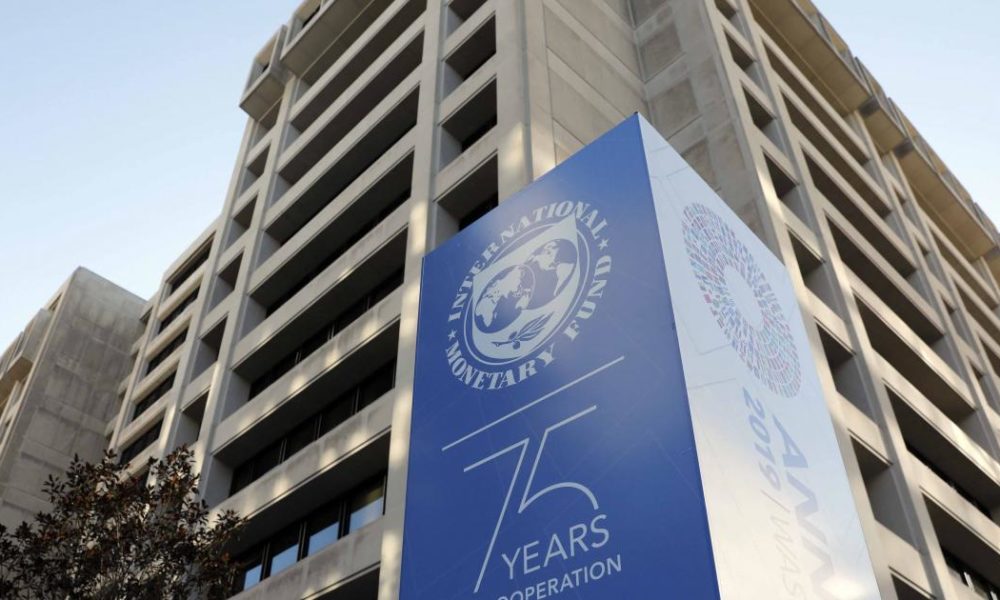Economy
IMF / World Economic Outlook 2022 Soundbites

Global growth prospects have worsened significantly due to the combined effects of inflation, war in Ukraine and lingering pandemic, the IMF announced on Tuesday (April 19).
Those impacts are outlined in the World Economic Outlook report, released at the beginning of the Spring Meetings of the IMF and World Bank in Washington, DC by new chief economist, Pierre-Olivier Gourinchas.
“Well, there is a significant downgrade to our growth projections for the global economy from 4.4 percent as of January to 3.6 percent in our latest update. 0.8 percentage point difference. There are three main reasons for this downgrade. First, the war invasion of Ukraine by Russia, which is increasing energy and commodity prices around the world and is leading to less output and more inflation.
“Inflation is higher in most countries and is expected to persist longer. In addition, we have a slowdown of the Chinese economy with more frequent lockdowns due to Omicron that is weighing down and then also elevated price pressures in many parts of the world or leading central banks to tighten monetary policy controls.” Said Pierre-Olivier Gourinchas, IMF’s Chief Economist.
Overall risks to economic prospects have risen sharply and policy trade-offs have become ever more challenging.
“Well, there are a number of important downside risks to our forecast. First, let me start with the war itself. The conflict could escalate, the sanctions could become broader, and this is clearly that would weigh down on economic activity. Second, inflation pressures are building up. Some countries, like the US, inflation is at the highest level in 40 years.
“There is a risk that this could persist and would call for more forceful action by central banks that would weigh down on output and economic activity. Third, the COVID 19 pandemic is still with us. We could see the emergence of new variants that are resistant to vaccines that would cause more lockdowns and disrupt global supply chains. Fourth, we could have in the context of tightening policy rates around the world, we could see also more financial instability. Many countries might find that capital flows out, currencies could start depreciating. This financial instability is another factor. Lastly, we have also the potential for social unrest given the increase in energy and food prices in many countries,” added Gourinchas.
Even as policymakers focus on cushioning the impact of the war and the pandemic, attention will need to be maintained on longer-term goals.
“Well, our advice to policymakers is first, do everything we can to end the war now. Beyond that, we can think about monetary policy, fiscal policy and health policy. For monetary policy, central banks need to act decisively to make sure that inflation expectations remain well anchored and not drifting away from central bank targets. At the same time, they need to act in a nimble and data dependent way to support growth and make sure that the hiking cycle that should happen is not going to be disruptive.
“On fiscal policy, the trade off is different. It’s between rebuilding fiscal buffers on the one hand and protecting vulnerable populations that have been hit by the increase in energy and food prices. So our advice is first. In countries where the health situation allows, withdraw the support that was put in place in the last two years, then to address vulnerable populations, implement targeted and temporary policies that will help them face higher prices for food and energy.
“This can take different forms, in the form of utility bill discounts, in the form of subsidies for food and energy prices as long as they are temporary and there are clear sunset clauses, and that all of these policies are inscribed in fiscal frameworks, medium term fiscal frameworks so as to ensure fiscal sustainability.
“Finally, on health policy, we need to implement a comprehensive toolkit with monitoring, tests, vaccines and treatments to make sure that all countries can emerge from the COVID 19 pandemic. And this will also require international donors to complete the funding for the international tools that we put in place with funding needs that are around $23.4 billion,” said Gourinchas.